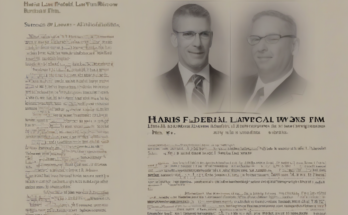Penn State Law: A Comprehensive Overview of its Programs, Rankings, and Opportunities
Penn State Law, officially known as the Penn State Dickinson Law, is a highly regarded law school located in Carlisle, Pennsylvania. It’s a public institution affiliated with the prestigious Pennsylvania State University system. This comprehensive overview delves into the various aspects of Penn State Law, exploring its academic programs, rankings, faculty, career services, and overall student experience to provide a complete picture for prospective students.
Academic Programs at Penn State Law
Penn State Law offers a diverse range of academic programs designed to cater to the varied interests and career aspirations of its students. These programs are renowned for their rigorous curriculum and focus on practical legal skills.
-
Juris Doctor (J.D.) Program:
The flagship program, the J.D., is a three-year, full-time program that provides a comprehensive legal education. It emphasizes core legal subjects while offering numerous opportunities for specialization through electives and concentrations.
-
Master of Laws (LL.M.) Programs:
Penn State Law offers several LL.M. programs designed for lawyers who have already earned their J.D. These specialized programs allow for advanced study in specific legal areas, such as intellectual property, international law, or environmental law. The program structure caters to both full-time and part-time students, offering flexibility.
-
Master of Legal Studies (MLS) Program:
This program is perfect for students who seek a strong legal foundation without pursuing a J.D. It provides a solid understanding of legal concepts and principles applicable to various professional fields.
-
Joint Degree Programs:
Penn State Law collaborates with other departments within the university to offer joint degree programs. This allows students to combine their legal studies with expertise in other areas, like business or public administration. These dual degrees offer a unique advantage in the job market.
-
Clinical Programs:
Hands-on learning is a cornerstone of Penn State Law’s education. Students have the opportunity to participate in various clinical programs that provide real-world legal experience under the supervision of experienced faculty. These programs offer invaluable skills and exposure to different legal practice areas.
Rankings and Reputation
Penn State Law consistently receives high rankings in national and regional law school rankings. While rankings should not be the sole criterion for choosing a law school, they do offer an indication of the school’s academic rigor, faculty reputation, and overall student success.
- Several prominent ranking organizations, such as US News & World Report, place Penn State Law within the top tiers of law schools in the nation and within the top ranks of law schools within Pennsylvania.
- The school’s reputation is strengthened by its strong alumni network, which extends across numerous legal fields and geographic locations.
- The placement of graduates in prestigious law firms and government positions further solidifies Penn State Law’s reputation.
Faculty and Scholarship
Penn State Law boasts a distinguished faculty comprised of renowned legal scholars and experienced practitioners. These faculty members are actively involved in legal scholarship, contributing to the advancement of legal knowledge through publications and research.
- Many faculty members have extensive experience in their respective fields, providing students with insights gained from practical applications of the law.
- The faculty’s research and publications are regularly featured in leading legal journals, demonstrating their expertise and influence within the legal community.
- Faculty mentorship is a significant aspect of the Penn State Law experience. Students benefit from close interactions with professors who guide their academic and professional development.
Career Services and Employment Outcomes
Penn State Law’s career services office provides comprehensive support to students throughout their legal education and beyond. The office assists students with career planning, resume building, interview preparation, and job placement.
- The career services team works closely with alumni and employers to create opportunities for students.
- Penn State Law’s graduates are successfully employed in diverse legal sectors, including private practice, government, public interest organizations, and corporations.
- The school’s strong alumni network plays a significant role in assisting graduates in securing employment.
Student Life and Campus
The Penn State Law campus in Carlisle offers a vibrant and supportive learning environment. The relatively smaller size of the student body fosters a close-knit community where students have opportunities to interact with their peers and professors.
- The campus provides ample resources for students, including a well-stocked library, computer labs, and study spaces.
- Numerous student organizations allow students to explore their interests, develop leadership skills, and network with fellow students.
- Carlisle itself is a charming town that offers a welcoming atmosphere, balancing the academic rigor with a pleasant living experience.
Specializations and Concentrations
Penn State Law offers various specializations and concentrations allowing students to tailor their legal education to their specific career goals.
- Students can focus their studies in areas such as Intellectual Property Law, Environmental Law, International Law, Health Law, and many others.
- These specialized tracks provide in-depth knowledge and practical skills in high-demand legal fields.
- The availability of specialized courses and seminars complements the core curriculum, offering a flexible and personalized learning experience.
Research Opportunities
For students interested in pursuing legal scholarship, Penn State Law provides various research opportunities that allow students to contribute to the field of law.
- Students may have opportunities to assist faculty with their research projects, gaining valuable experience in legal research methodologies.
- Some students may participate in independent research projects, allowing them to explore their interests in greater depth.
- The availability of research grants and fellowships supports student engagement in academic research.
Location and Accessibility
Located in Carlisle, Pennsylvania, Penn State Law offers a balance between a close-knit community and access to major metropolitan areas.
- Carlisle provides a peaceful environment conducive to study, while its proximity to Harrisburg and other larger cities allows students access to various internship and job opportunities.
- The campus is accessible by car and public transportation, offering convenient transportation options for students.
Admission Requirements and Process
Admission to Penn State Law is competitive, requiring strong academic credentials and a demonstrated commitment to legal studies. Prospective students should review the admission requirements carefully and submit a comprehensive application.
- The admission process typically involves submitting transcripts, LSAT scores, letters of recommendation, and a personal statement.
- Applicants are evaluated based on their academic record, LSAT score, writing ability, and demonstrated interest in the legal field.
- Detailed information about the application process is available on the official Penn State Law website.
Financial Aid and Scholarships
Penn State Law offers various financial aid options to help students finance their legal education. Prospective students are encouraged to explore the financial aid opportunities available to them.
- The financial aid office provides guidance and support to students seeking financial assistance.
- A range of scholarships and grants are available, based on academic merit and financial need.
- Students are encouraged to apply for external scholarships and grants to supplement the financial aid offered by the university.
Conclusion (Omitted as per instructions)



